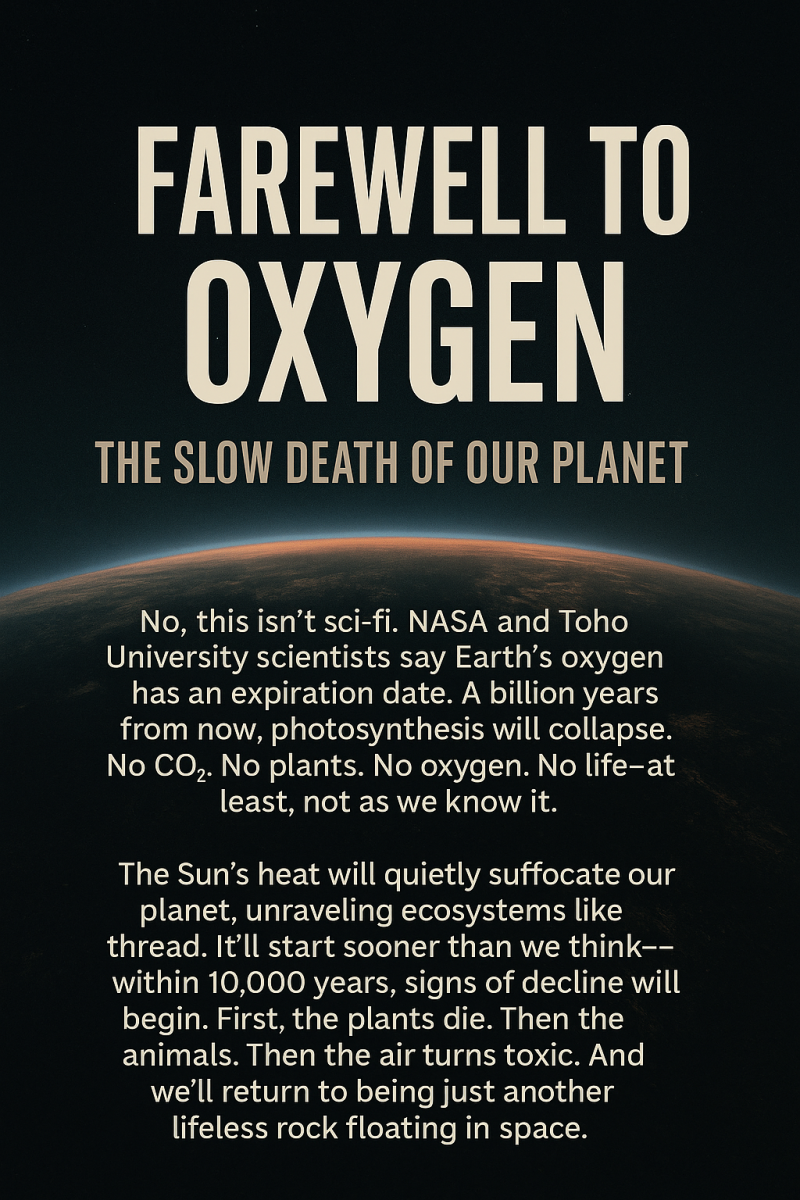
It sounds like the start of a dystopian novel: Earth is running out of oxygen. But this isn’t fiction — it’s a real scientific projection by NASA’s Nexus for Exoplanet System Science (NExSS) and researchers from Toho University. Their latest study suggests that Earth’s atmosphere will eventually lose the ability to support complex life. The countdown has already begun.
The end won’t come tomorrow, or even in our great-great-grandchildren’s time. Scientists estimate that in about 1 billion years, Earth’s oxygen levels will collapse — a domino effect triggered by the Sun’s slow but steady increase in temperature. But even though this seems like a far-off crisis, it’s forcing us to confront the reality of Earth’s fragility and how temporary our home really is.
The Science Behind the Oxygen Collapse
Here’s what’s happening: as the Sun ages, it becomes hotter and brighter. This gradual warming will break apart CO₂ molecules in the atmosphere. Carbon dioxide is what plants need to perform photosynthesis — the process that produces the oxygen we breathe. No CO₂ means no photosynthesis, and no photosynthesis means oxygen levels plummet. Once the plants die, complex life — including us — becomes unsustainable.
According to researchers Kazumi Ozaki and Christopher Reinhard, Earth will eventually return to the way it was billions of years ago: barren, dry, and lifeless, except for anaerobic microbes that can survive without oxygen.
That transformation may start to become noticeable within the next 10,000 years. The ozone layer, which protects us from harmful solar radiation, will vanish alongside the oxygen. Methane levels will increase, turning Earth into a toxic, hostile world that no longer resembles the planet we know.
Why Should We Care Now?
It’s easy to shrug off a warning that’s a billion years away — after all, we won’t be here to see it. But this discovery has implications far beyond distant doom. It changes how we think about life on Earth and what makes a planet habitable.
Our atmosphere — something we take for granted every second — is not guaranteed to last forever. Earth is not a permanent refuge. The balance that sustains life is delicate, and it can (and eventually will) fall apart. That alone is sobering.
It also raises questions about climate change, space exploration, and our role as caretakers of a temporary home. While this oxygen loss isn’t due to human activity, it serves as a stark reminder that Earth’s systems can — and will — shift over time.
Final Thoughts
We don’t need to panic about losing our air supply anytime soon. But understanding that Earth’s ability to support life has a shelf life should inspire humility, urgency, and maybe even awe. Nothing in the universe lasts forever — not even the air we breathe.
If nothing else, it puts things in perspective. The Earth we know is a gift. A temporary, breathtaking, blue dot — and we only get one.
Add comment
Comments